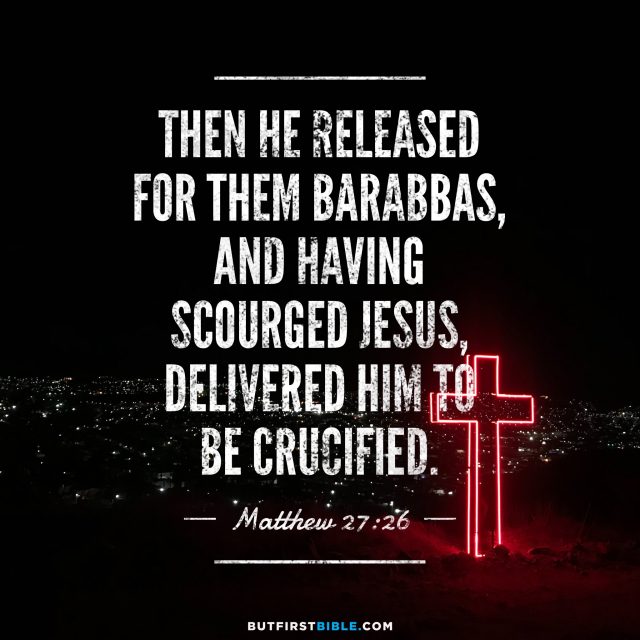
Welcome to the “But first, Bible” daily devotional podcast with Dave Miers.
Our readings today are from Leviticus 15-17 and Matthew 27:1-31. If you haven’t had a chance to read the Bible yet, maybe pause this podcast to go hear from God’s word, and then come back for my brief reflection on Matthew 27.
Okay, welcome back.
Over today and tomorrow, we are reading about the death of Jesus on the cross in Matthew’s gospel.
I want to focus on theology and history. History describes what took place. Theology describes why – from God’s perspective – it took place.
Our keyword for this study is SUBSTITUTION.
First, we will look at substitution from a theological perspective.
The following is a quote from John Stott’s magnum opus – The Cross of Christ – in his chapter on ’The Self-Substitution of God’.
“The concept of substitution may be said to lie at the heart of both sin and salvation. For the essence of sin is man substituting himself for God, while the essence of salvation is God substituting himself for man. Man asserts himself against God and puts himself where only God deserves to be; God sacrifices himself for man and puts himself where only man deserves to be. Man claims prerogatives that belong to God alone; God accepts penalties that belong to man alone.” (John Stott, The Cross Of Christ)
Second, we will look at substitution from a historical perspective.
In particular one powerful moment of substitution that takes place in today’s narrative.
Matthew 27:15–26
[15] Now at the feast the governor was accustomed to release for the crowd any one prisoner whom they wanted. [16] And they had then a notorious prisoner called Barabbas. [17] So when they had gathered, Pilate said to them, “Whom do you want me to release for you: Barabbas, or Jesus who is called Christ?” [18] For he knew that it was out of envy that they had delivered him up. [19] Besides, while he was sitting on the judgment seat, his wife sent word to him, “Have nothing to do with that righteous man, for I have suffered much because of him today in a dream.” [20] Now the chief priests and the elders persuaded the crowd to ask for Barabbas and destroy Jesus. [21] The governor again said to them, “Which of the two do you want me to release for you?” And they said, “Barabbas.” [22] Pilate said to them, “Then what shall I do with Jesus who is called Christ?” They all said, “Let him be crucified!” [23] And he said, “Why? What evil has he done?” But they shouted all the more, “Let him be crucified!”
[24] So when Pilate saw that he was gaining nothing, but rather that a riot was beginning, he took water and washed his hands before the crowd, saying, “I am innocent of this man’s blood; see to it yourselves.” [25] And all the people answered, “His blood be on us and on our children!” [26] Then he released for them Barabbas, and having scourged Jesus, delivered him to be crucified. (ESV)
There is much that could be said about the governor Pilate’s role or the crowd’s role in Jesus being delivered up for execution, or the chief priests and elders. But we will consider Barabbas for a moment.
Barabbas a known criminal – was on death row awaiting the penalty for his crime.
Jesus had committed no crime – he wasn’t deserving of any penalty.
And yet, in the moment when the crowd called for the release of Barabbas and the execution of Jesus – a substitution took place.
Jesus takes the penalty that Barabbas deserves.
And so to jump from the historical back to the theological: we are like Barabbas.
John Stott said this, “Like Barabbas we escape the cross, for Christ died in our place”
Perhaps you could spend some time today, acknowledging your sin before God – that you have substituted yourself for God. And also spend time giving thanks to God that Jesus willingly substituted himself for you and your sin at the cross.
Until tomorrow, keep trusting Jesus.
